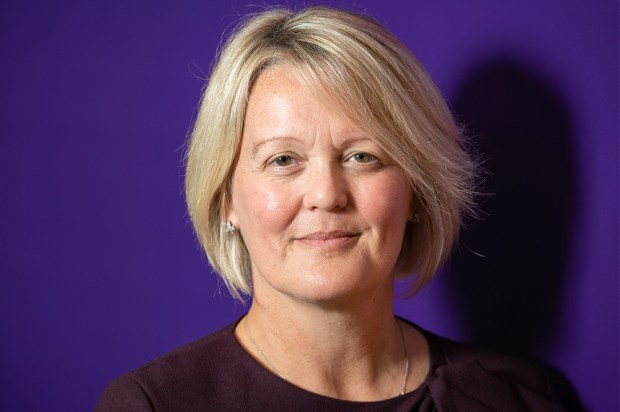‘1914: Day by Day’, the Radio 4 series by the historian Margaret MacMillan, is a gripping reminder that significant global events often arrive not in a single eruption but in a series of lesser happenings that only afterwards form an obvious pattern. Let’s hope that’s not what we’re watching in the banking sector as anticipation builds towards the results, due in October, of the European Banking Authority’s current round of ‘stress testing’.
Last month’s trouble spot — with a certain resonance for the current centenary — was Austria, whose government forced losses on bondholders in the troubled Hypo Alpe-Adria-Bank by overriding a guarantee from the province of Carinthia. A clutch of other Austrian banks, all heavily exposed to eastern Europe, had their debt downgraded by Moody’s; one of them, Erste Bank, revealed it expects to lose €1.6 billion this year. Austria’s central bank chief Ewald Nowotny made matters worse by warning that the stress tests might ‘lead to exaggerations’ if too strictly applied, adding unconvincingly, ‘I don’t see any wobbly candidates.’
This month the spotlight fell on Portugal, where the second largest lender, Banco Espirito Santo, saw a run on its shares prompted by problems in its family-owned holding company. Management changes followed, but not before Portugal’s prime minister Pedro Passos Coelho felt obliged to declare that he had ‘not the slightest reason to doubt that the tranquillity of our financial and banking system will be maintained’. In response, Banco Popular of Spain pulled an issue of ‘coco’ bonds (‘coco’ being short for ‘contingent convertible’, meaning debt that converts to equity if the issuer’s Tier 1 capital ratio falls below target) because investors were demanding too high a yield.
Do these ripples at opposite ends of Europe form a pattern? Not yet. But Jaime Caruana, head of the Bank for International Settlements, has just given a stern lecture about rising debt levels throughout the developed world, and let’s remember that the first warning of nasty surprises in this year’s stress tests — in February, from Davide Serra of Algebris Investments — pointed to weakness in German regional banks, at the core of the Continent’s strongest economy. As for UK banking, foreign observers might well ask when and how the problems of the Co-op and RBS will finally be resolved, and whether our ‘alternative lending’ sector isn’t growing just a little too exuberantly.
Will the financial world go pear-shaped again this autumn? I sincerely hope not, and I feel in my bones that the momentum of the economic upswing will carry us through. But I am, as you know, an eternal optimist, and I guess that’s just the sort of sentiment I might have expressed in July 1914.
Creative value
There isn’t a single item of Burberry in my wardrobe, I’m afraid, so I was unaware until this week of the fashion genius that is the firm’s chief executive Christopher Bailey, whose £20 million pay deal received a thumbs-down from 53 per cent of shareholders at last week’s AGM. The vote was not binding on the board, however, so Bailey — the Halifax-born carpenter’s son who, I now know, reinvented the trench coat and rescued the classic Burberry check from the chavs who adopted it a decade ago — will get his giant share award anyway. But does he really deserve it?
Though there have been surprisingly few shareholder votes against top executives’ pay (only six in FTSE100 companies since 2002), the current mood is — rightly — for tighter scrutiny, and against excess. In Bailey’s case, we’re reminded that Burberry is a genuinely global brand, that his award was in response to ‘competing job offers’, and that his unique creative work makes him a valuable asset rather than merely a manager — to be compared with Apple designer Sir Jony Ive. But does that really add up to £20 million? And more to the point, what sort of half-baked governance system leaves a majority vote of a company’s owners ‘non-binding’ on the directors who work for them?
Brotherly feelings
Strolling like Burlington Bertie towards the Beefsteak Club, I found my path blocked at Piccadilly Circus by striking teachers and other public-sector workers — and I realised the only way to make progress was to join the march until I could slip away on the other side of Haymarket. So I fell in alongside a chap waving a Socialist Worker placard, mouthed (presciently) ‘Gove Out!’ a few times, and decided if challenged to point to my red tie and introduce myself as Len McCluskey.
From the flank of the parade I observed that foreign tourists along the route looked bemused, while British shoppers mostly looked hostile — perhaps not realising what a service we marchers were rendering, there being no bigger vote-loser for Ed Miliband than a series of noisy, disruptive, politically motivated stoppages like this one between now and the general election. Link arms, brothers, and let’s do it again soon.
The next day, my feeling for public-service workers went up another notch — and this time without irony or sarcasm. Arriving at York on a northbound train, I found my car battery flat. That must happen often to passengers using the station car park, but the information desk knew of no breakdown service and had nothing to suggest except to try asking in the ticket office. Not expecting any useful result, I did so — and a Network Rail employee behind the counter, whose badge said ‘Thomas, Shift Manager’ and who turned out to be Polish, responded with quite remarkable helpfulness. First he Googled the AA for me, then looked thoughtful and said, ‘But they take forever. You got jump leads?’ I shook my head disconsolately. ‘OK, we go to Tesco and buy some.’
And so we did, in his car, and eventually got mine started again, the while discussing the pros and cons of immigrant life and the prospects for his daughter and expected new baby compared to his own childhood in drab 1980s Warsaw. It was a delightful encounter, and one that needs no punch line.
Got something to add? Join the discussion and comment below.
Get 10 issues for just $10
Subscribe to The Spectator Australia today for the next 10 magazine issues, plus full online access, for just $10.
You might disagree with half of it, but you’ll enjoy reading all of it. Try your first month for free, then just $2 a week for the remainder of your first year.
















Comments
Don't miss out
Join the conversation with other Spectator Australia readers. Subscribe to leave a comment.
SUBSCRIBEAlready a subscriber? Log in